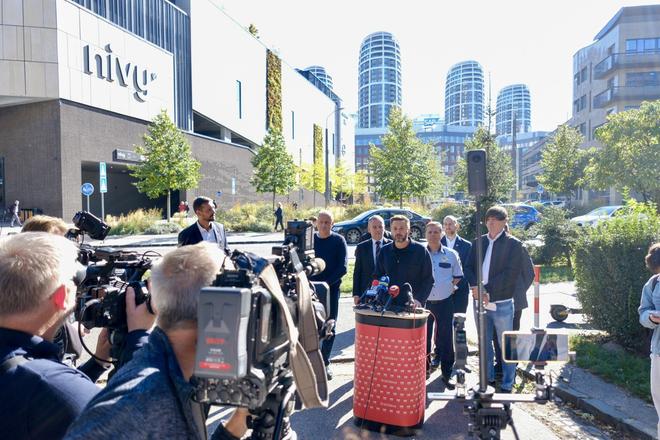Bratislava’s mayor, Matúš Vallo, has accused Slovakia’s government of fuelling a rise in crime after a legal change that effectively decriminalised petty theft. Together with district mayors, he is urging ministers to undo what he calls the “most damaging parts” of the Criminal Code reform.
The amendment, passed earlier this year by Robert Fico’s left-nationalist coalition, raised the threshold for prosecuting theft as a crime from €299 to €700 — roughly £590 or $750. City officials say the shift has emboldened offenders, leading to a spike in shoplifting, drug-related incidents and aggressive street behaviour.
“The sense of safety in our streets is vanishing,” Vallo said at a press conference held in the Ružinov district on Wednesday. “The government must act quickly. This law has caused serious harm, and people feel it every day.”
Local leaders are calling for tougher penalties for repeat offenders, a return of sobering-up centres closed more than two decades ago, and a larger national police presence in the capital. They also want tighter regulation of pawnshops, which they say are fuelling the trade in stolen goods.
“People steal in shopping centres, pawn the goods across the street and use the money for drugs,” said Ružinov’s mayor, Martin Chren, describing the notorious “500 flats” neighbourhood near the Mlynské nivy bus station as one of the city’s most problematic areas.
Municipal police say the district has required 221 interventions in just three months. Similar concerns have been raised in Vrakuňa and at major transport hubs such as Trnavské mýto and Kamenné námestie, where residents report feeling unsafe after dark.
Minister rejects crime link
Interior Minister Matúš Šutaj Eštok, of the governing Hlas party, has dismissed the link between crime and the legal change, accusing Vallo of politicising the issue. “Maybe if he expanded the city police as much as his PR department, it would help,” the minister told reporters, echoing criticism from one of Vallo’s expected rivals in next year’s municipal elections. The minister argued that increased petty crime is a common feature of large cities and pointed to government measures to attract more national police to Bratislava by raising housing allowances.
Vallo rejected that argument, noting that city spending on police has nearly doubled since 2018, rising from €8.8 million to €17.4 million, yet municipal officers still lack powers to deal with drug and property crime without national support.
“We don’t need political games, we need cooperation,” he said. “People just want to feel safe again.”
Authorities draft new measures
Amid the dispute, both city and national authorities say they are working on practical measures. The Interior Ministry is preparing a map of crime hotspots, similar to one already maintained by the city police, though neither is publicly available. The government also plans to strengthen the powers of municipal police through legislative changes, while the city council is drafting an ordinance to expand local policing authority.
The minister also addressed the issue in early September at a press conference titled “Stealing doesn’t pay off”. Alongside Justice Minister Boris Susko from Smer, he blamed rising crime on social tensions and polarisation fuelled by the pandemic, the energy crisis and food inflation. Susko also pointed a finger at the media and opposition.
But security analyst Martin Královič told Denník N that the real problem is perception: “Even if statistics suggest little change, people are afraid to walk through their own neighbourhoods — and that’s what must change.”


